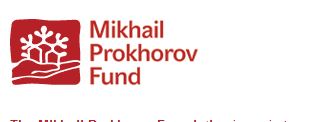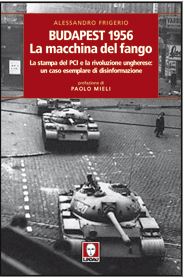deadline 15 August 2018
Voluntary Work, Volunteering and Voluntary Associations in the Czech Republic and Central Europe, 1980-2000
Brno, 5th-6th November 2018
‘Volunteering’, within the context of state socialist regimes after 1945, has traditionally been associated with unpaid work campaigns for the construction of railways, roads and schools. This was of substantial relevance, in particular during the decades of post war reconstruction. The appeal to sacrifice free time for unpaid social activities remained a constant feature up to
1989. After the downfall of communism, studies from the broad field of transformation research have tended to identify consistently lower levels of volunteering in the post communist societies when compared with the Western societies. Within this framework of thinking, it is conventionally accepted that volunteerism as such ceased to exist during state socialism and that the activities of traditional charities and associations were fully replaced by state- and party-controlled mass organizations. Some scholars, however, have shown that communist authorities did not abolish organized volunteerism altogether, but on the contrary, used it as one among other institutional bases on which to construct a socialist society and to bind less committed sections of the population to the system. The workshop focuses on the forms and experiences of volunteering activities and voluntary associations in the two decades before and after 1989, the year, which is used rather as a hinge than being presupposed as a caesura. The intention is also to discuss how much volunteerism has indeed changed after 1989 under the mantra of “civil society” which was a key term to raise the participation of society in the nascent democracies in post communist Europe. We encourage papers from a range of different disciplines, including history (e.g. micro-, social, legal history), social anthropology, sociology, gender-studies, among others. There is a particular interest in papers that address the following topics and questions:
⁃ The durability and activities of “traditional” prewar associations, such as the Red Cross or sport, alpine, hunting, and firefighting associations during the late and post-socialist period or during violent or non-violent transitions.
⁃ The relevance and practices of voluntary associations established after 1945 in late and post socialism.
⁃ The role and transformation of volunteering and voluntary work under different economic and political systems, including their material and human resources.
⁃ The role of associations in the transformation of the political system (e.g. the political mobilization of volunteers in the nascent democracies).
⁃ The changing structural preconditions for voluntary associations (the legal framework, leadership structures, subordination and relative autonomy).
⁃ The position of “old” associations vs. new types of organizations (NGOs etc.) and new forms of activism in the 1980s and 1990s.
⁃ Social practices and the importance of volunteering and voluntary associations on the level of local communities (their social and cultural role, places of inclusion or exclusion).
⁃ “Experienced history”: what does it mean to be a volunteer?
⁃ The importance of voluntary association for trans-border and international contacts and the “return to Europe”.
Please email an abstract of your paper of a maximum of 400 words along with a brief biography including main publications (maximum 1 page) to Mojmir Stransky:
mojmir.stransky@univie.ac.at by 15th August 2018.
Notification of acceptance will be announced by 31st August 2018.
In order to facilitate deeper discussion, participants will be asked to submit their papers (maximum 3,000 words) before the conference, by 19th October 2018. Each paper will then be sent to a commentator and to the other workshop participants. The presentation at the workshop should be no longer than 15 minutes.
This workshop is the second of the three regional workshops (Ljubljana in March 2018, Brno in November 2018, Dresden 2019) organized by the Research Cluster for the History of Transformations (RECET) at the University of Vienna and the Hannah Arendt Institute for Research on Totalitarianism at the TU Dresden. The workshop in Brno is organized in cooperation with the Institute of Auxiliary Historical Sciences and Archive Studies, Faculty of Arts, Masaryk University.
The organizers will cover travel and accommodation costs of the participants.
The workshop is part of the project Volunteering in Local Communities between Late Socialism and Liberal Capitalism: The History of Volunteer Fire Departments in Germany and East Central Europe, 1980-2000, which is supported by the German Research Foundation (Deutsche Forschungsgemeinschaft, DFG) and the Austrian Science Fund (Fonds zur Förderung der wissenschaftlichen Forschung, FWF).
http://iog.univie.ac.at/ forschung/laufende-projekte/ volunteering-in-local- communities/












